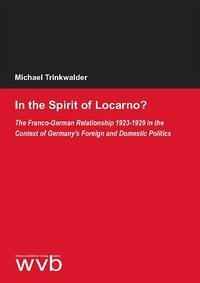During the course of the First World War, Germany and France suffered more than 3.5 million war dead, more still were left horribly disfigured or with permanent mental scars. Thus, while the guns fell silent in November of 1918, the two neighbors very much remained two nations divided by an “ocean of hatred.” Yet, Gustav Stresemann in Germany and Aristide Briand in France nevertheless embarked on a course to fundamentally transform the antagonistic relationship between their two countries. At the same time, as this diplomatic revolution was taking place, there was also a radical change in how both foreign and domestic politics had to be conducted. The war and even more so the peace that followed it made the population painfully aware of the fact that foreign policy decisions had the potential to dramatically affect their daily lives. Thereby creating an inextricable linkage between foreign and domestic politics in the perception of the public. As a defeated nation this relationship was naturally particularly pronounced in Germany. Thus, this thesis sets out to answer the question of how the interlinked nature of Germany’s foreign and domestic politics shaped Franco-German rapprochement between 1923-1929 and why it ultimately failed.
Bitte wählen Sie Ihr Anliegen aus.
Rechnungen
Retourenschein anfordern
Bestellstatus
Storno

